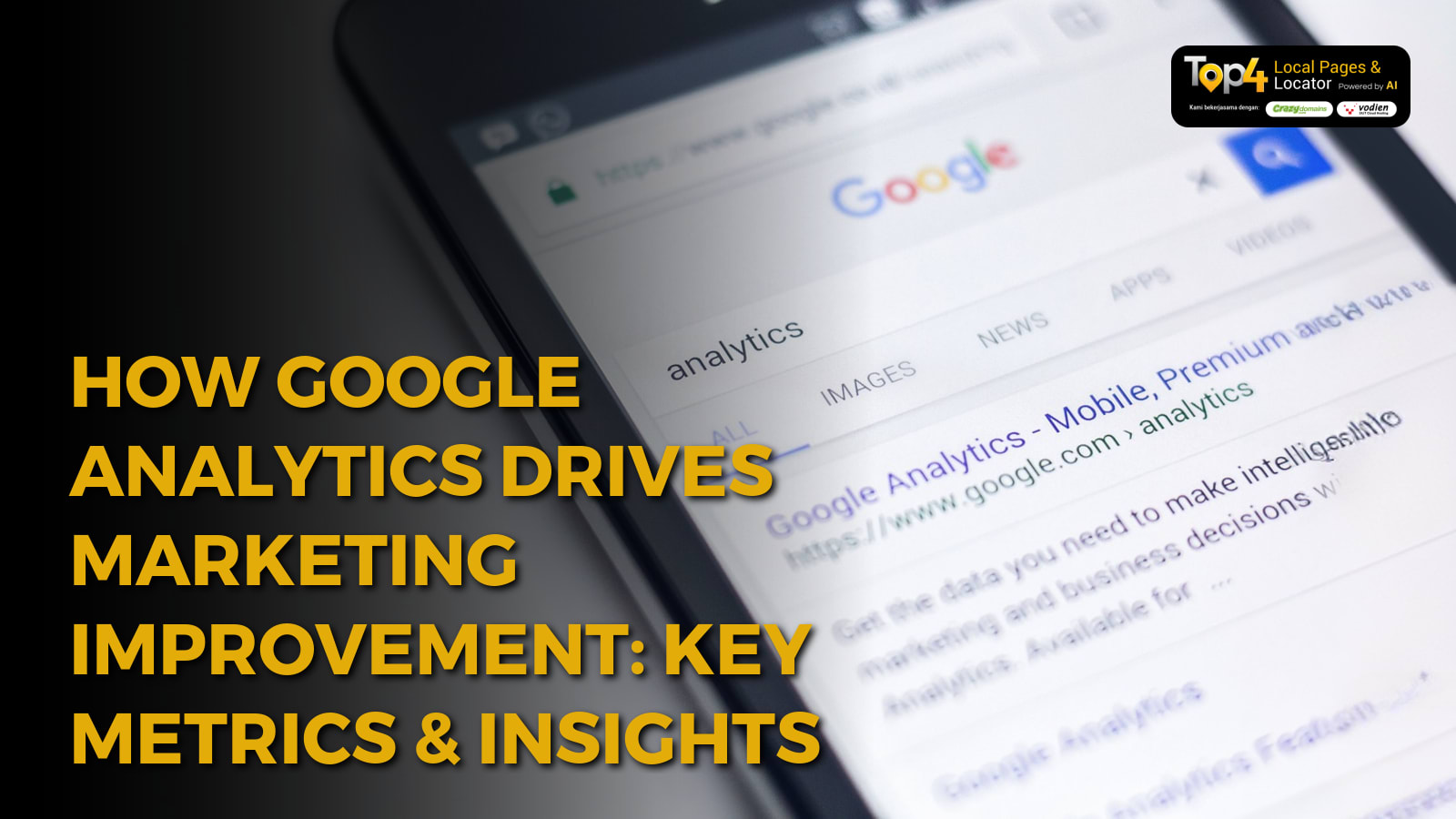
Have you ever wondered how some businesses seem to always be one step ahead in their digital marketing strategies? It’s not just luck. Many successful companies leverage Google Analytics to refine their marketing efforts and achieve better results. Understanding how Google Analytics works and how to use its data effectively can transform your marketing approach. This article explores the key Google Analytics metrics for optimising marketing performance, how to use Google Analytics data to refine marketing strategies, and how to interpret analytics metrics for better marketing decisions. Dive into the world of Google Analytics to uncover how it can offer valuable insights into your marketing strategies and drive improvement.
Understanding Google Analytics Metrics
Google Analytics is a powerful tool for tracking and analysing website traffic. It offers a range of metrics that can provide valuable insights into your digital marketing efforts. One of the most important aspects of Google Analytics is understanding the metrics that matter most for marketing improvement. Key Google Analytics metrics for optimising marketing performance include metrics such as sessions, bounce rate, and conversion rate.
Sessions indicate the number of visits to your website, while the bounce rate shows the percentage of visitors who leave without interacting further. The conversion rate, on the other hand, tracks the percentage of visitors who complete a desired action, such as making a purchase or filling out a contact form. By monitoring these metrics, you can assess the effectiveness of your marketing campaigns and identify areas for improvement.
Another crucial metric is the average session duration, which reveals how long visitors stay on your site. A higher average session duration generally indicates that users find your content engaging and relevant. In contrast, a low duration may suggest that your content needs to be more compelling or better aligned with user expectations.
Leveraging Google Analytics for Marketing Insights
To truly benefit from Google Analytics, it’s essential to understand how to use its data to refine marketing strategies. Start by setting up goals within Google Analytics to track specific actions you want visitors to take on your site. These goals can be customised based on your business objectives, such as tracking purchases, sign-ups, or downloads.
Once goals are set, analyse the data to determine which marketing channels are driving the most conversions. Google Analytics provides detailed reports on acquisition channels, including organic search, paid search, social media, and referral traffic. By examining these reports, you can determine which channels are most effective and allocate your marketing budget accordingly.
Additionally, Google Analytics offers demographic and interest reports that provide insights into the characteristics of your audience. Understanding who your visitors are and what interests them can help you tailor your marketing messages to better resonate with your target audience. This can lead to more effective campaigns and improved engagement.
Interpreting Analytics Metrics for Better Marketing Decisions
Interpreting analytics metrics accurately is key to making informed marketing decisions. For instance, if you notice a high bounce rate on a particular page, it may indicate that the page content or user experience needs improvement. Conversely, a high conversion rate on a specific page suggests that your content and calls to action are resonating well with visitors.
Another important aspect is segmenting your data to gain deeper insights. Google Analytics allows you to segment your audience based on various factors such as location, device, and behaviour. By analysing these segments, you can identify trends and patterns that may not be apparent from aggregate data alone. This segmentation can inform targeted marketing strategies and personalised campaigns.
It’s also valuable to compare your current metrics with historical data to gauge performance over time. This trend analysis can help you understand how changes in your marketing strategies impact your results and make necessary adjustments to optimise your approach.
Conclusion
Google Analytics is a powerful tool that, when used effectively, can provide invaluable insights into your digital marketing strategies. By understanding and leveraging key Google Analytics metrics, you can refine your marketing efforts, improve your campaigns, and make better-informed decisions. Whether you are tracking sessions, analysing conversion rates, or segmenting your audience, Google Analytics offers the data you need to drive marketing improvement.
If you’re ready to take your digital marketing strategies to the next level, explore how Top4 Online can help you maximise your online visibility and attract more customers. Visit our website at Top4 Online to learn more about our services and how we can assist you in leveraging Google Analytics for your marketing success. For more insights and tips, check out our articles at Top4 Articles and Top4 Insights.
To find out how we can help you with your Website + Marketing, using our unique location marketing platform called Top4 (Top4.online), get in touch today at www.top4marketing.com

AI-powered local pages for local marketing
Looking to build customer loyalty through social media? Don’t forget to add your business to Top4.online
Add your business, create your own digital store to sell goods and services, and share posts on social media. Promote your business on Google instantly! Should you need help with local digital marketing then view our new Google Marketing Platform and services Top4 Marketing
Get Found On Google, Promote Your Website, Get More Leads!
Our Digital Marketing Agency Services Across All Industries Include Search Engine Optimisation (SEO), Google Marketing, Website Design, Corporate Web Development, and local location-based marketing using our own Google Marketing Platform!




